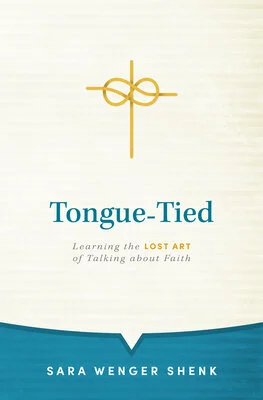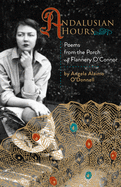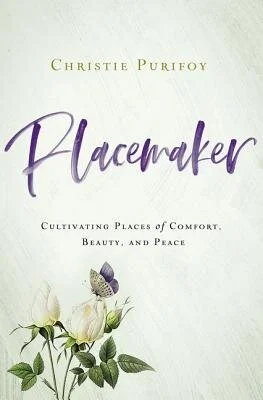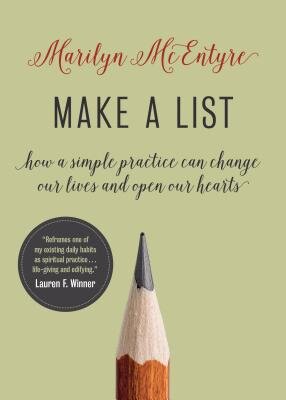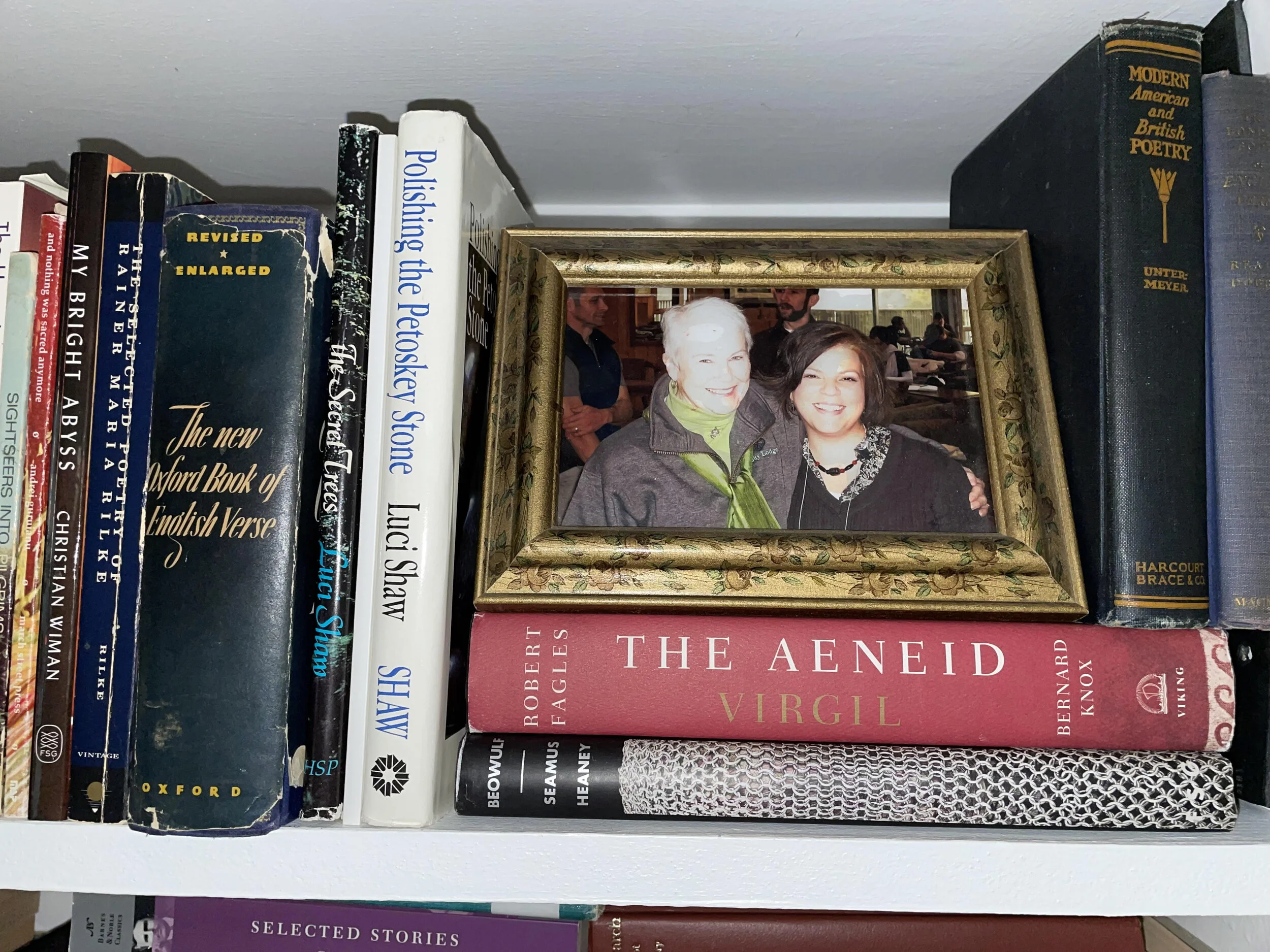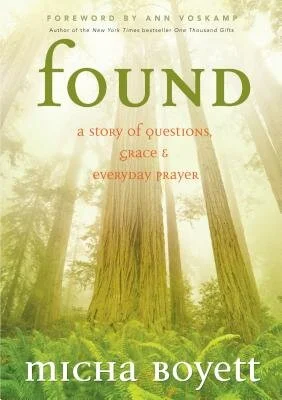An Invitation to Attention - Make a List: How a Simple Practice Can Change Our Lives and Open Our Hearts by Marilyn McEntyre
An Invitation to Attention
A Review of
Make a List: How a Simple Practice Can Change Our Lives and Open Our Hearts by Marilyn McEntyre
Hardcover: William B. Eerdmans Publishing Company, 2018
Bookshop | Amazon | Hearts & Minds Booksellers
Reviewed by Tamara Hill Murphy for Englewood Review of Books, January 2018
Quick! List ten answers - besides “Fine” - to the question: “How are you?”! How about five ideas for how to spend a good time with a person with dementia? Now, make a list of the favorite gifts you’ve ever received. If you’re enjoying these prompts, you’ll love Marilyn McEntyre’s newest release; if the prompts feel vaguely beneficial, but you can’t articulate why then you need to read Make A List: How A Simple Practice Can Change Our Lives and Open Our Hearts.
If you’ve read any of McEntyre’s previous works, you know she values a precise and thoughtful use of language, especially among people of faith. From her writing (and her website bio ) you know she values “connecting spirituality, politics, food, healthcare, care for the earth and its creatures, care for language and public discourse, and finding new ways to live together on a planet that needs healing”. If you read in between the lines you’ve noticed her skillful use of lists to sum up all the she values and promotes. If not then the university professor spells it out for us, well, in list-form, in this delightful reflection on the unexamined artistry of list-making.
McEntyre offers a new way to look at a timeworn practice that most of us have used but few of us have considered beyond helping us get things done. Before the reader gets to the introduction, the author hints at the overlooked relational and spiritual values of list making in her book dedication - a poetic sort of list in its own right,
“For the people who keep me on their prayer list
and their contact list
For the people who distract me from the to-do list
and the people who help me get through it.
And for all the people on my A-list
whose names are inscribed in my heart --
The whole long list of you.
You know who you are.”
Reading the descriptive list of book dedicatees, my mind turned to the people I would name in my own similar list. In that small gesture, a list turns into a narrative of gratitude, even a memoir of sorts. Each page after the dedication continues with thoughtful writing prompts and generous real-life examples that gently increase the reader’s imagination for areas of untapped personal discovery and areas for spiritual, relational, and creative growth.
I’m a list-maker from way back. Nearly fifty hand-scrawled journals crammed onto bookshelves and under my bed catalog all that I’ve hoped to do, read, see, eat, make, bake, buy, and become in the past forty-plus years of my life. Whether you use journals, scraps of found paper, or the more efficient technique of a spreadsheet, you, too, understand the irresistible draw to put into words all that floats through your thoughts during the day and through your dreams during the night. (By the way, on page 53, McEntyre describes the value of list-making to consider the implications of her vivid dreams.)
By comparison to the the author’s life, my own enjoyment of list-making has waned with age. Choices became more complex, energy more limited, and disappointments more acute. Truthfully, much of what I’ve recorded in journals all these decades embarrasses me with its optimism and expectancy. I’d begun to blame the format, scoffing the audacity of all those bulleted lists and scrawled ideas punctuated with exclamation marks.
Recently, my increasing apprehension for list-making resurfaced in an assignment for my training as a Spiritual Director. My cohort had been assigned the task of writing a Rule of Life. Christian monastic communities all the way back to Benedict have used this practice to help sort the great commands of Scripture and purposes of God into the shared practices of daily life. The book we’d been assigned to help us write our own Rule of Life required copious list-making - relationships, values, skills, hopes, disciplines, constraints - all of it fodder for a master list to structure our lives. I froze. Somewhere along the way, my love for lists became tainted with a sense of disappointment, shame, and cynicism. Make A List reminded me that the practice of list-making is not a record of failure, but instead an invitation to curiosity and grit.
“It takes a certain courage to be specific, because the more specific we are, the more we expose ourselves to objections or obligations. But specificity is also empowering.” (Here we go! This is the part I need to hear most of all!) “We can’t act with energy or direction if we aren’t specific about our intentions. So listing can become an important step in making ourselves more responsible, reflective, attentive, intentional members of our families and communities.” (71)
See what she did there? She made another list! I didn’t realize how desperately I needed the kind of encouragement Marilyn McEntyre includes on just about every page of this little book. Each of the three sections in Make A List is made up of mini-chapters that include the author’s personal reflections and several disarming writing prompts. In Part 1, “Why Make A List?”, the author elucidates 19 thoughtful reasons for list making. If that hadn’t been enough to refresh the frozen screen of my imagination, then the 19 gentle encouragements in Part 2, “The Way of the Listmaker,” refreshed my list-making love for good. In Part 3, “Play Lists” followed by an appendix, McEntyre indulges our curiosity in the listicle in much more thoughtful, life giving ideas than the average digital clickbait.
While a list will always serve as a helpful tool for tracking tasks and grocery items, Make A List helps us envision a function that far exceeds utility. With list-making suggestions for people ranging from couples receiving premarital counseling to colleagues brainstorming workplace solutions and policy makers trying to discover a middle ground, McEntyre casts a vision for both the relational and social values of list-making. Many of my favorite suggestions from the book invite us to consider the potential role lists play within our spiritual formation.
“Every tradition hands down some version of a list: the Ten Commandments, the eight Beatitudes, the four noble truths and the five great precepts of Buddhism, the five great Hindu precepts, the five pillars of Islam, the seven deadly sins, the seven spiritual works of mercy, the twelve steps and Twelve Traditions of Recovery.” (135)
Indeed, Make A List is nothing less than a primer on making lists as a spiritual practice, and a wonderful revelation for my guilt-ridden, shame-shrunk imagination.
Helping us pay attention to language, Scripture, relationships, and communities is what Marilyn McEntyre does best. In her newest book, she resurrects the lowly list as an instrument of personal discovery, relational growth, and spiritual peace. In a world hunting for life-changing tips and techniques, McEntyre offers, instead, a life-giving practice available to anyone willing to keep handy a scrap of paper and a pencil. I can imagine groups of friends going through the book together over a period of time as well as an individual reader like myself.
While the practice of list-making is simple, like any act of deep, sustained attention the rewards can be profound. In describing one reason to make lists (“To experience deep attention”), the author describes a moment within the Byzantine rite of the Eastern Orthodox liturgy. Before the Gospel is read, the priest lifts the scriptures above his head and recites “Wisdom! Be attentive!” as the congregation stands in response. With this illustration it’s easy for me to imagine McEntyre holding up pen and paper, offering her own invitation to attention.
I encourage everyone to add this book to their list.
Bonus Features
Did you know you can find all the book reviews I’ve published here: Book Reviews
